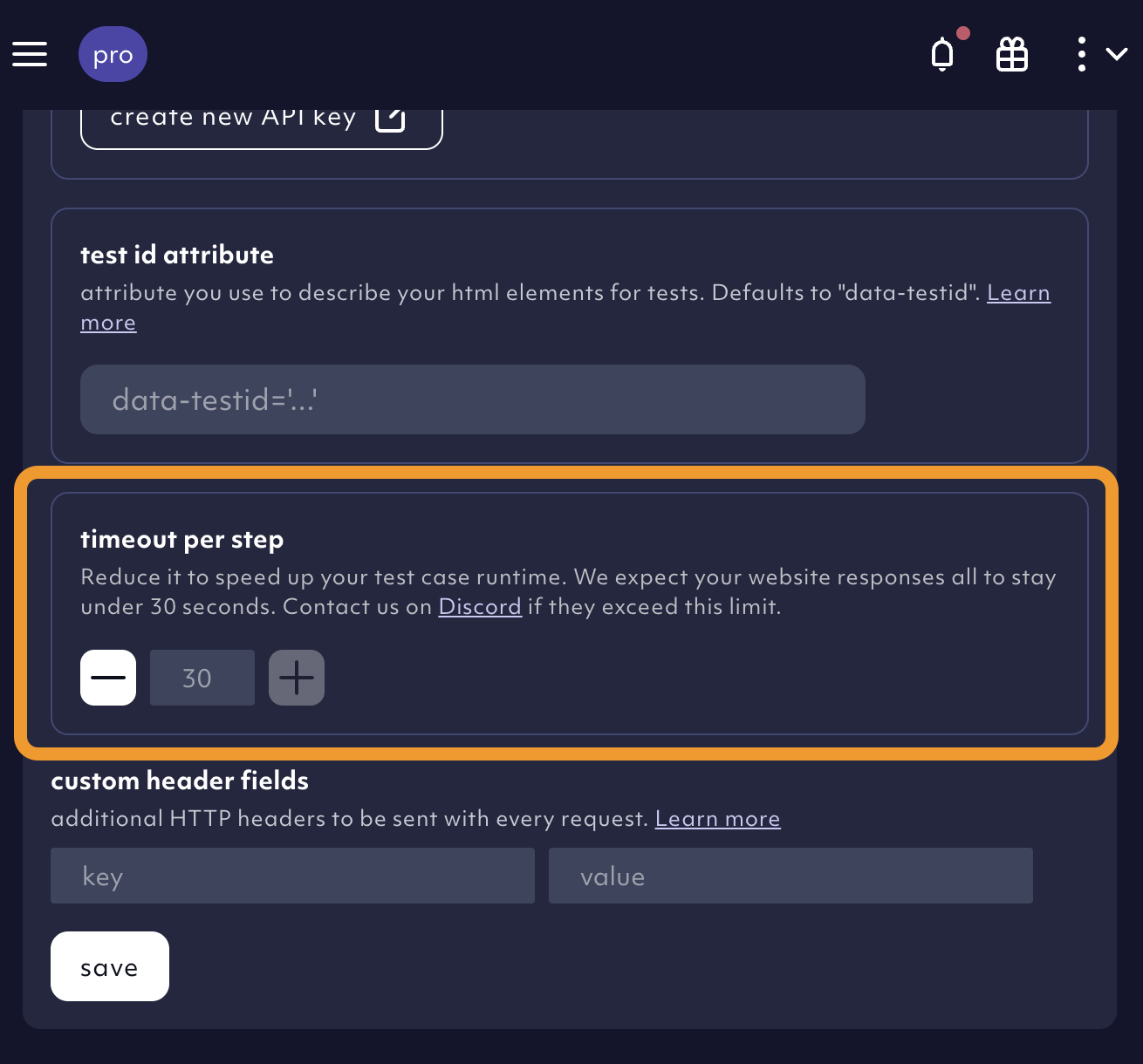Run your active test cases
You should have number of active tests in your test suite by now. They are on.
To check if there are any bugs in your new build or in production preventing your users from operating your app, you will have to run the tests.
1. Select browser, resolution and trigger a test run
To run all active tests instantly, go to test reports and click on run. A dialog window pops up with 2 tabs.
In the one-time run tab you can select which browser (Chromium, Firefox, Safari) and screen sizes you want the tests to run for. If you tagged your tests, you can shard the execution - run only tests with specific tags.
Click run all active. This will trigger a test run resulting in a test report visible in the Octomind app.
Useful for branch deployments - you can run your tests against any other accessible URL. Insert it into the run on URL field.
We also “run” a test cases when you save changes to a test you have
edited. We validate the test itself to see if it’s not broken. This doesn’t
mean it will run automatically when you trigger a test run. You have to turn
the test case on.
2. Understand test results
Every test run will produce a test report where you will see all test results. They will tell you if everything runs as it’s supposed to or if something is broken.
Go to the test report section to learn about test reports.
3. Why is a test red?
Red signals the test has failed. This might have 3 reasons:
- You have a bug in your app
- The test is broken.
- The test is flaky.
Learn more about why tests fail, how to easily diagnose the cause of a failed test and how to fix a broken test.
Schedule regular test runs
The point of software testing is to test regularly. Go to scheduled run tab, select frequency, pick your browsers, tags, and screen resolution.
Click on schedule run in the lower right corner. This is a great strategy for synthetic monitoring of your app in production.
Test timeout
You can use the global step timeout in the environment settings to shorten the timeout between steps if you want to run the tests faster. Our default is 30 seconds. This option should be enjoyed with caution - it can lead to more frequent failures due to timing issues.
Trigger test runs via curl command
If you do not use pipelines and want to manually trigger the test execution from outside our app, e.g. from your terminal, you can do it with a cURL command. Learn how.
Trigger test runs from your CI
Integrating our tests to your CI pipeline is a great way to make sure you didn’t break the app with new releases. Learn how to integrate Octomind into your CI/CD.
Test sharding
Use tags to filter and shard test execution. Organize your test suite and split test runs into smaller chunks which can all run in parallel!
Run your tests locally
Octomind tests are written in standard Playwright code. You can download it an run the test locally. This is how you use our open source Debugtopus to do so.





